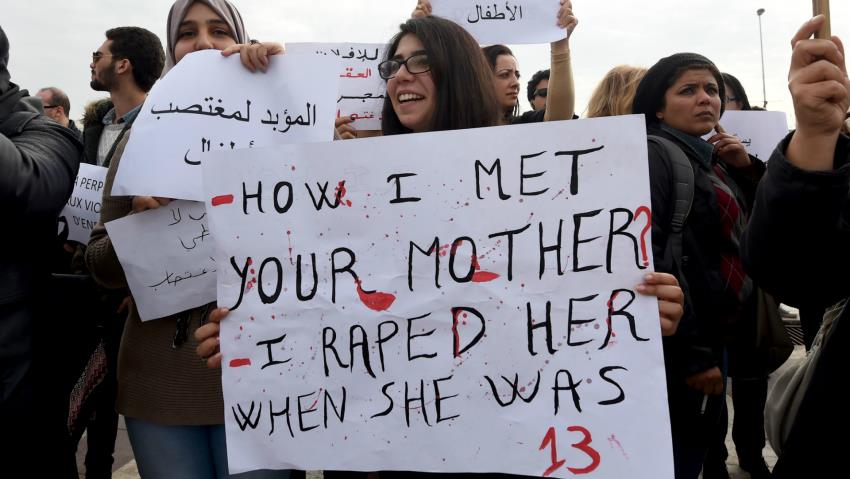The top United Nations human rights official hailed the repeal of laws in Lebanon, Tunisia and Jordan that used to allow rapists to avoid criminal prosecution by marrying their victims.

“To punish a rape victim by making her marry the perpetrator of a horrible crime against her – there is no place in today’s world for such hideous laws,” on 22 August said the UN High Commissioner for Human Rights, Zeid Ra’ad Al Hussein.
He welcomed the stand that lawmakers in Lebanon, Tunisia and Jordan have taken towards eliminating violence against women and ensuring that perpetrators of such violence are held to account.
“To punish a rape victim by making her marry the perpetrator of a horrible crime against her – there is no place in today’s world for such hideous laws,” UN High Commissioner for Human Rights, Zeid Ra’ad Al Hussein.
According to the UN High Commissioner’s Office (OHCHR), on 16 August, Lebanon voted to repeal article 522 of its penal code, a law that exempted from criminal prosecution a person accused of rape who agreed to marry the victim.
Two weeks earlier, Jordanian lawmakers also voted to abolish a similar provision – article 308 of its penal code.
In Tunisia, on 26 July, the Parliament adopted a law on eliminating violence against women and eliminating impunity for perpetrators, recognising that violence against women includes economic, sexual, political and psychological violence.
The Tunisian law will come into effect next year. Tunisia has also established two human rights institutions this year dealing with human trafficking and improving the enjoyment of individual liberties and equality.
“These are hard-won victories, thanks to the tireless campaigns over the years by human rights defenders – in particular women human rights defenders – in Tunisia, Lebanon and Jordan,” underscored High Commissioner Zeid.
He noted, however, that in Lebanon, article 505 of the Penal Code continues to allow those accused of having sex with a minor to go free if they marry their victims, while article 508 allows for marital rape, and called for the article to be repealed and for marital rape to be criminalised.
Jordan
In the case of Jordan, the law until now allowed a rapist to avoid prosecution by marrying his victim for a minimum period of five years. However, the Parliament of Jordan on 4 August voted to abolish the so-called “rape law” of the Penal Code, UN Women, informed.
“The abolishing of article 308 is an important victory for the women’s movement in Jordan,” said Wafa Saed Bani Mustafa, a lawyer and Member of the Parliament (MP), currently serving as head of the Women’s Caucus and Chairperson of the Coalition of Women MPs to Combat Violence against Women the UN specialised entity reported.
The law eliminates impunity for perpetrators of violence, for example, by amending the article 227 of the penal code, which pardoned a perpetrator of a sexual act with a minor when the perpetrator married his victim. The passing of the law follows several years of advocacy efforts led by Tunisian civil society and national institutions, in collaboration with international organisations, including UN Women.
“My engagement began in 2013, when I started advocating for the abolishment of this article, along with a group of other parliamentarians while serving in Jordan’s 17th Parliament. I started this action because of my strong belief in the need to eliminate all forms of discrimination against women in our national laws, as I believe that Jordanian women are citizens with equal rights and duties.”
“Continued Drama, Fear and Abuse”
Emphasising the “continued trauma, fear and abuse that rape survivors endure when forced to marry their rapists,” civil society, parliamentarians and other actors formed a dedicated coalition in 2015. Together, they demanded the adoption of better legal measures to protect survivors of rape, sexual assault and harassment, and to punish the perpetrators to end impunity, adds UN Women.

